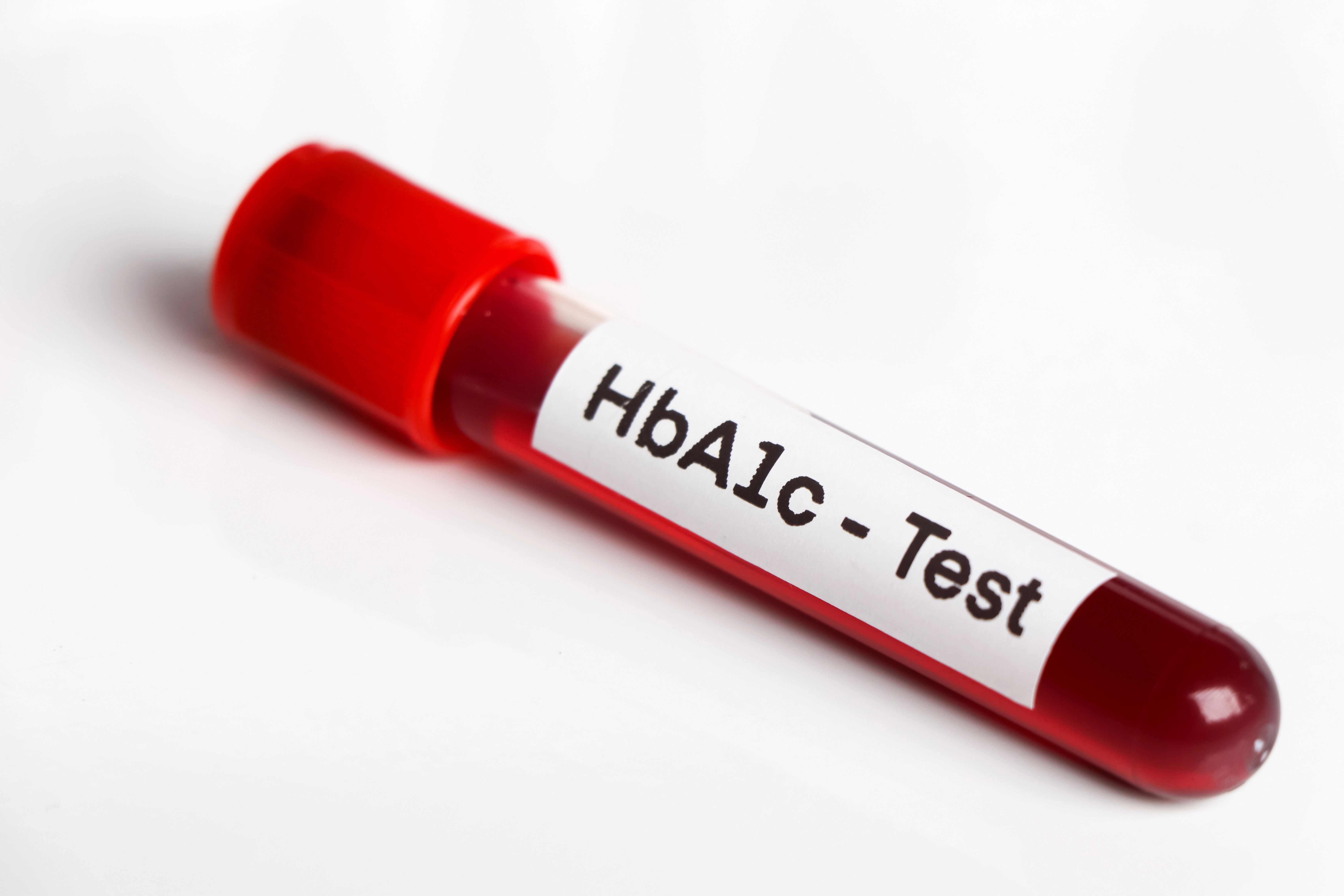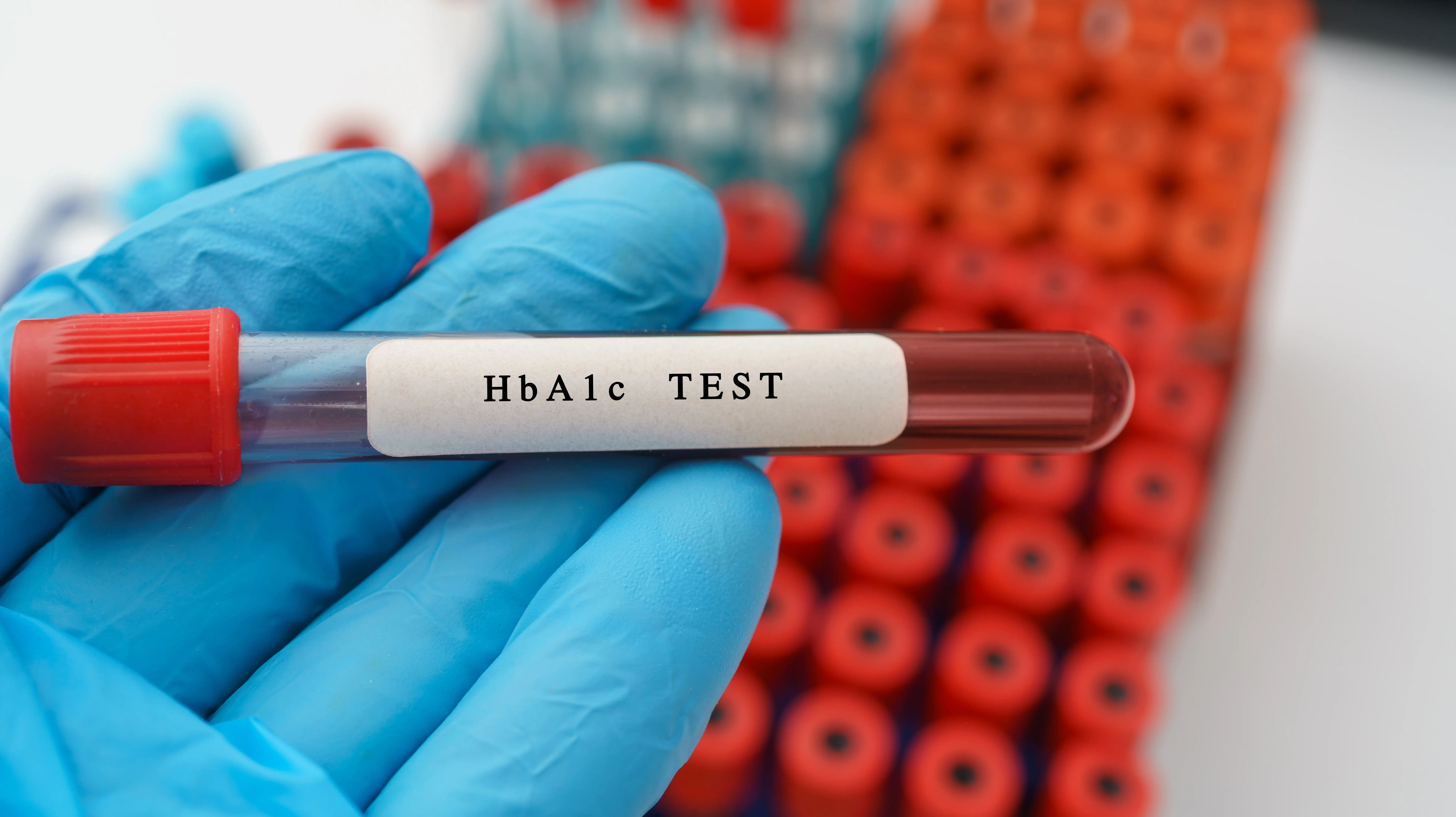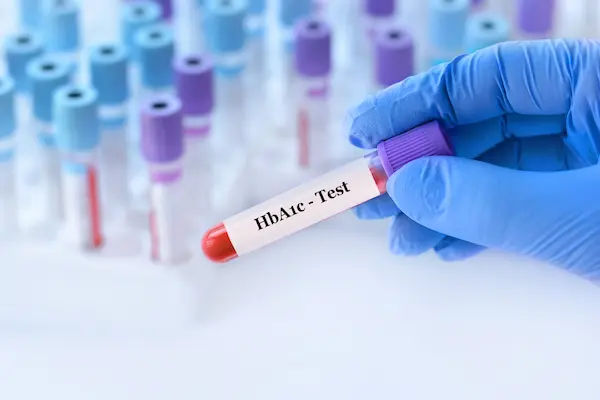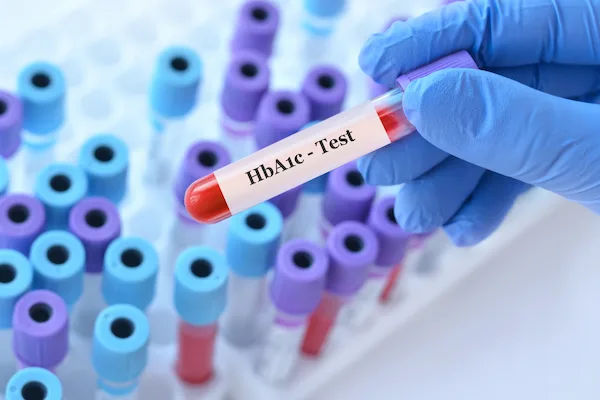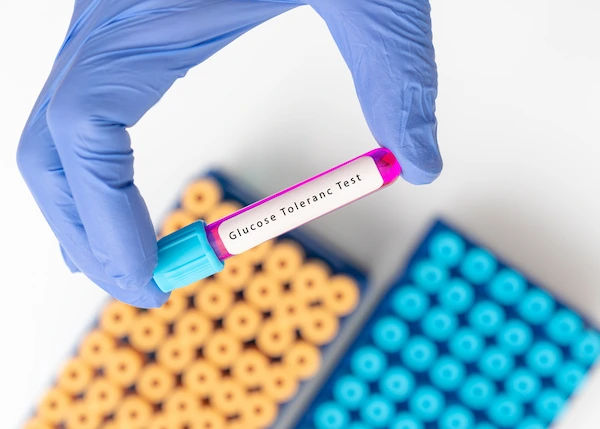HbA1c Test: Understanding Normal Values
Learn about the HbA1c test, its normal values, and what your results mean. Get insights on managing blood sugar for better diabetes care.

Written by Dr. Dhankecha Mayank Dineshbhai
Reviewed by Dr. Rohinipriyanka Pondugula MBBS
Last updated on 9th Sep, 2025

Introduction
If you're navigating concerns about blood sugar or diabetes, you've likely heard of the HbA1c test. Often called the A1c or hemoglobin A1c test, this simple blood measure is a cornerstone of modern diabetes care. But what does it actually tell you? Unlike a daily finger-prick test that gives a snapshot of your blood glucose at a single moment, the HbA1c test provides a bigger picture: a three-month average of your blood sugar levels. Understanding your normal value is crucial, as it can be a key indicator of your risk for prediabetes or diabetes and is essential for effectively managing the condition if you have it. This comprehensive guide will break down everything you need to know about the HbA1c test, from the science behind it to how you can use your results to take control of your health.
What exactly is an HbA1c Test?
The HbA1c test is a common blood test used to measure the average amount of glucose (sugar) attached to your hemoglobin over the past two to three months. Hemoglobin is a protein in your red blood cells that carries oxygen. When glucose enters your bloodstream, it binds to this hemoglobin in a process called glycation. The higher your blood sugar levels, the more glucose binds to your hemoglobin. An HbA1c test result is given as a percentage, representing the proportion of hemoglobin proteins that are glycated.
The Science Behind the Test: Glycation Explained
- Think of your red blood cells as tiny, constantly circulating vehicles. Hemoglobin is the driver, and glucose is a sticky passenger. The more glucose in the blood (the busier the station), the more passengers stick to the drivers. Red blood cells live for about 120 days, so by measuring how many "drivers" have "passengers" on board, doctors can get a reliable average of how busy the station has been over the last three months. This makes the HbA1c test a remarkably stable indicator of long-term glycaemic control, unaffected by short-term spikes from a single meal.
HbA1c vs. Blood Glucose Monitoring: What's the Difference?
- This is a common point of confusion. Home blood glucose monitors are essential for daily management, especially for people taking insulin. They tell you your blood sugar level right now, helping you make immediate decisions about food, activity, or medication. The HbA1c test, on the other hand, is the report card. It shows the overall trend of how well your daily management plan is working over time. You need both for a complete picture of your diabetes health.
Consult a Diabetologist for the best advice
Understanding Your HbA1c Test Results
Interpreting your results is straightforward, as they fall into three clear categories defined by the American Diabetes Association (ADA).
HbA1c Normal Range and Chart
For a person without diabetes, a normal HbA1c level is below 5.7%. This indicates that your average blood sugar levels are within a healthy range and your body is effectively managing glucose.
Prediabetes Range: A Crucial Warning Sign
- An HbA1c level between 5.7% and 6.4% is classified as prediabetes. This is a critical window of opportunity. It means your average blood sugar is higher than it should be, significantly increasing your risk of developing type 2 diabetes. The good news? Prediabetes can often be reversed through lifestyle changes like weight loss, improved diet, and increased physical activity, preventing or delaying the onset of diabetes.
Diabetes Range: What the Numbers Mean
- An HbA1c level of 6.5% or higher on two separate tests confirms a diagnosis of diabetes. For most adults with diabetes, maintaining an HbA1c level below 7% is a common treatment goal, as it is associated with a lower risk of diabetes-related complications. However, individualised targets are important.
Get Your Health Assessed
How to Lower Your HbA1c Level Naturally
If your test shows you are in the prediabetes or diabetes range, lifestyle intervention is your first and most powerful tool.
Dietary Changes for Better Blood Sugar Control
- Focus on a balanced diet rich in fibre (vegetables, whole grains, legumes), lean proteins, and healthy fats. Be mindful of carbohydrates, especially refined carbs and sugars, which cause rapid spikes in blood glucose. Portion control and consistent meal timing are also key strategies for maintaining stable sugar levels throughout the day.
The Power of Physical Activity
- Exercise makes your cells more sensitive to insulin, helping them use glucose more effectively. Aim for at least 150 minutes of moderate-intensity aerobic activity (like brisk walking) per week, plus two sessions of strength training. Even a short walk after a meal can help blunt a post-meal blood sugar spike.
Stress Management and Quality Sleep
- Chronic stress and poor sleep can increase cortisol levels, which in turn can raise blood sugar. Incorporating stress-reduction techniques like meditation, deep breathing, or yoga, and prioritizing 7-9 hours of quality sleep per night, are often overlooked but vital components of blood sugar management.
When to See a Doctor About Your HbA1c
You should consult a doctor if:
- You have symptoms of high blood sugar (increased thirst, frequent urination, fatigue, blurred vision).
- Your at-home test or routine screening shows an HbA1c level in the prediabetes or diabetes range.
- You have diabetes and are struggling to meet your target HbA1c goal.
- You need to establish a personalized management plan.
If your HbA1c is elevated, consult a doctor online with Apollo24|7 for further evaluation and to create a tailored plan to manage your blood sugar levels effectively. For confirmed monitoring, Apollo24|7 offers a convenient home collection for tests like HbA1c, making it easy to track your progress from home.
Conclusion: Taking Control of Your Metabolic Health
Understanding your HbA1c level is more than just reading a number on a lab report; it's a powerful insight into your long-term metabolic health. Whether your goal is prevention, reversal of prediabetes, or effective management of diabetes, this test provides the crucial data you need to take informed action. Remember, an elevated result is not a final verdict but a starting point for positive change. By partnering with your healthcare provider, adopting sustainable lifestyle habits, and monitoring your progress with regular testing, you can work towards achieving and maintaining a healthy HbA1c level. This single step can significantly reduce your risk of complications and empower you to lead a healthier, more vibrant life. Take charge of your health today; consider booking a test or speaking with a specialist to understand your numbers.
Consult a Diabetologist for the best advice
Consult a Diabetologist for the best advice

Dr. Lakshmi Sanjitha Kakani
General Physician/ Internal Medicine Specialist
6 Years • MBBS, MD (General Medicine)
Visakhapatnam
Apollo 24|7 Clinic - Andhra Pradesh, Visakhapatnam

Dr. Suraja Nutulapati
General Physician/ Internal Medicine Specialist
10 Years • MBBS, MD (Internal Medicine)
Hyderabad
Apollo 24|7 Clinic, Hyderabad
(975+ Patients)

Dr. Arabinda Bera
General Physician/ Internal Medicine Specialist
20 Years • MBBS, PGDCC(CARDIOLOGY), CCEEDM(DIABETES)
Kolkata
MCR SUPER SPECIALITY POLY CLINIC & PATHOLOGY, Kolkata

Dr. Arif Ahmed
General Physician/ Internal Medicine Specialist
9 Years • MBBS, MD (Genl. Med.)
Kolkata
MCR SUPER SPECIALITY POLY CLINIC & PATHOLOGY, Kolkata

Dr. Utsa Basu
Diabetologist
14 Years • MBBS, MD
Kolkata
Dr Utsa Basu Clinic, Kolkata
(400+ Patients)
Consult a Diabetologist for the best advice

Dr. Lakshmi Sanjitha Kakani
General Physician/ Internal Medicine Specialist
6 Years • MBBS, MD (General Medicine)
Visakhapatnam
Apollo 24|7 Clinic - Andhra Pradesh, Visakhapatnam

Dr. Suraja Nutulapati
General Physician/ Internal Medicine Specialist
10 Years • MBBS, MD (Internal Medicine)
Hyderabad
Apollo 24|7 Clinic, Hyderabad
(975+ Patients)

Dr. Arabinda Bera
General Physician/ Internal Medicine Specialist
20 Years • MBBS, PGDCC(CARDIOLOGY), CCEEDM(DIABETES)
Kolkata
MCR SUPER SPECIALITY POLY CLINIC & PATHOLOGY, Kolkata

Dr. Arif Ahmed
General Physician/ Internal Medicine Specialist
9 Years • MBBS, MD (Genl. Med.)
Kolkata
MCR SUPER SPECIALITY POLY CLINIC & PATHOLOGY, Kolkata

Dr. Utsa Basu
Diabetologist
14 Years • MBBS, MD
Kolkata
Dr Utsa Basu Clinic, Kolkata
(400+ Patients)
Frequently Asked Questions
Do I need to fast before an HbA1c test?
No, one of the major advantages of the HbA1c test is that it does not require fasting. You can have the blood drawn at any time of the day, regardless of when you last ate.
How often should I get my HbA1c checked?
If you have prediabetes, your doctor may recommend testing yearly. If you have diabetes and are meeting your treatment goals, it's typically checked every 6 months. If your therapy has changed or you aren't meeting goals, it may be checked every 3 months.
Can a high HbA1c mean something other than diabetes?
While it's primarily used for diabetes, a high HbA1c can sometimes be caused by other conditions that affect red blood cells or hemoglobin, such as anemia, kidney disease, or sickle cell trait. Your doctor will interpret your result in the context of your overall health.
How can I calculate my average blood sugar from my HbA1c?
You can use this formula: Average Blood Glucose (mg/dL) = (28.7 x HbA1c) - 46.7. For example, an HbA1c of 7% equals roughly 154 mg/dL. This is called the Estimated Average Glucose (eAG).
Are there any symptoms of a high HbA1c level?
The symptoms are those of chronic high blood sugar and include increased thirst, frequent urination, fatigue, blurred vision, and slow-healing sores. However, many people with prediabetes or early type 2 diabetes have no symptoms at all, which is why screening is so important.

